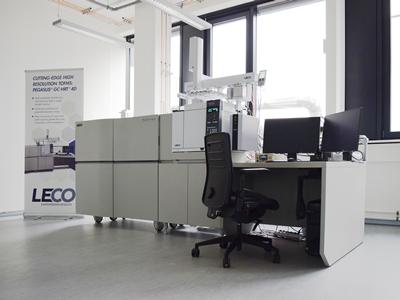Highly advanced Southampton spectrometer to spearhead chemical research across southern region

Researchers across the south of England will analyse novel and strategically important chemistries through a new mass spectrometer at the University of Southampton.
The high-spec instrumentation based in the School of Chemistry will represent a unique capability within the UK academic sector, offering multi-inlet two-dimensional gas chromatography and high resolution mass spectrometry.
The system, which is funded by an £856,000 investment by the Engineering and Physical Sciences Research Council (EPSRC), will deliver qualitative and quantitative analysis of challenging fuels and trace level materials.
It will advance the research of UK synthetic and catalysis chemistry communities who work with volatile compounds, environmental scientists detecting low level pollutants in complex matrices and air-borne pollutants, and engineers researching the evolution of small organic gases and low level contaminants, such as sulphur.
Professor John Langley, Head of Characterisation and Analytics and Principal Investigator, says: “Mass spectrometry is a technique for weighing compounds or molecules. Combined with chromatography it offers the most powerful modern day instrumentation for the analysis of complex mixtures.
“This system will deliver advanced automated sample introduction techniques, separation of complex mixtures and advanced high resolution mass spectrometry to aid compound identification. The multi-format auto-sampler will allow the widest range of complex samples to be introduced into the analytical engine.”
The new strategic equipment will support the research from regional partners at the University of Bath, University of Portsmouth and Swansea University, and will be extended to other academic and industry researchers to form a new Centre of Excellence for high-priority EPSRC research.
Within Southampton, the instrumentation will aid projects including catalysis and synthetic chemistry, fuels research in the Langley research group, environmental research into clean air and plastic pollutants, and asthma research at Southampton General Hospital.
The equipment is the latest addition to a suite of outstanding in-house facilities and services in the School of Chemistry, which includes an Advanced Composite Materials Facility and the EPSRC National Crystallography Service (NCS).